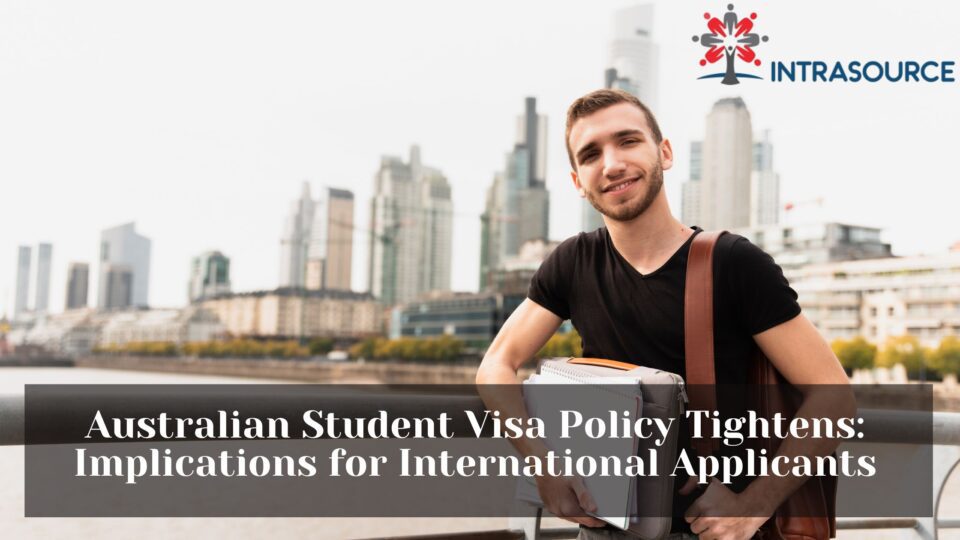In recent developments down under, Australia’s strategy pertaining to international Australian Student Visa has taken a discernible shift. The government’s tightening of policies is aimed squarely at deterring non-genuine students who have, in the past, exploited immigration loopholes to seek work on a study pretext. This stern approach is yielding tangible results as latest figures from the Department of Home Affairs underscore a significant decline in visa approvals for students.
Tightened Reins on Approvals
By the midpoint of fiscal 2023, data revealed a marked 19% rejection rate in Australian Student Visa applications. This trend, if consistent, portends a steep fall in study visas for the year 2023/24 – a potential drop of 91,715 when juxtaposed with the previous year’s tally of 577,295 successful visas. To put these numbers into perspective, consider the refusal rates from prior years:
- Just 10% in 2018/19,
- A slight dip to 8.5% in 2021/22,
- Then up to 14% in 2022/23.
The current figures reflect more than just numeric; they reveal a shift towards more stringent screening procedures.
Dissecting the Decline
The targeted measures part of December 2023’s policy overhaul mean that success rates now skew towards certain applicants over others. Heavier proof burdens placed upon applicants are due to newer stipulations like increased English-language proficiency requirements and an obligatory “Genuine Student Test.” This evaluation is designed to sift out sincere students – those whose foremost intent is academic and who are likely to contribute valuable skills to Australia’s economy.
Notably vulnerable are those aspiring for lower credential levels, who are increasingly finding their visa appeals rejected. Phil Honeywood, CEO of International Education Association of Australia, sheds light on the matter by indicating a pivot from diploma-level vocational students towards individuals offering more substantive economic skill sets.
A Closer Examination
As part of its revised approach towards international student management, Australia has intensified scrutiny over applications it deems high-risk and has cracked down on dishonest educational providers. These amendments come hand-in-hand with an empowered Australian Student Visa integrity unit within the Department of Home Affairs that aims to staunch misuse within Australian Student Visa mechanism.
With enhanced enforcement power comes elevated refusal rates – a direct consequence of immigration officers being better equipped at sifting through ill-intentioned applicants. A spokesperson from the Department elaborates on encountering increased integrity issues within the program encompassing fraudulent documents and English language test deceits among other concerns.
In summary, by stonewalling non-genuine study pursuits and fortifying educational prerequisites, Australia is streamlining its international education sector dealing mainly with integrity and quality over mass intake. This constitutes a pivotal turn in Australian immigration narrative that prospective international students must heed closely when seeking educational opportunities on this continent.
Government Policies Aim to Reduce Migration
Australia’s recent shift in internationalisation strategy is putting noticeable downward pressure on net migration. Purposefully designed by the government, these policies mirror efforts taken in other countries, such as Canada, where the influx of new international students has led to an affordable housing shortage and a subsequent decline in public support for immigration.
ABS Data Reveals Downturn in Net Overseas Migration
MacroBusiness.com highlights that according to the Australian Bureau of Statistics (ABS), there’s a clear indication that Australia’s net overseas migration (NOM) has surpassed and reversed its peak. Data illustrated in the forthcoming chart indicates a significant reduction in monthly net arrivals from historically high levels.
International Education and Its Economic Impact
Governments in Australia, Canada, and the UK have all shifted immigration policies recently, impacting the flow of international students. The strategies vary drastically between these countries:
Canada’s Severe Caps
Canada has instituted sweeping restrictions, significantly capping new study permits for the following two years, among other limitations.
UK Excludes Student Dependants
The UK has reformed its policy to disallow most international students from bringing dependants, potentially affecting student influx.
Australia Fine-Tunes Its Strategies
Australia opts for nuanced policy making—implementing numerous minor adjustments to discourage exploitation by certain students, agents, and institutions.
Projected Outcomes for Visa Approvals and Student Influx
Preliminary data from the Department of Home Affairs points towards an anticipated 15% reduction in visa approvals for 2023/24 based on current refusal rates. Such figures suggest a more conservative reduction in new international students for Australia compared with potential outcomes for Canada and the UK.
In contrast, Canada faces immediate reductions due to suspended study permit processing coupled with their stringent two-year cap. Moreover, demand in the UK is already waning amidst new restrictions affecting student dependants.
In conclusion, Australia aims to strike a balance between harnessing the substantial economic benefits from international students and enhancing systemic integrity. Government policies and pronouncements indicate an intention to discourage fraudulent practices among non-genuine students rather than curbing enthusiasm among all prospective international learners.


